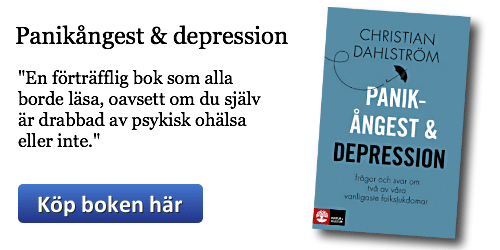Last December, as I was working on a podcast documentary about Sigmund Freud, I had the chance to engage in a conversation with the psychologist and science historian, Frank Sulloway. Back in 1979, Sulloway released his well-known book ”Freud, Biologist of the Mind,” shedding light on the fact that much of Freud’s theoretical framework relied on biological theories that have since been proven incorrect. Listen to the full interview above or read my summary below.
In the vast landscape of scientific history, few individuals have stirred both fascination and debate as much as Sigmund Freud. I had the honor of interviewing esteemed scholar Professor Frank Sulloway, whose research has challenged conventional notions about Freud and the development of psychoanalysis, offering valuable insights into the enigmatic figure and his enduring legacy.
Sulloway’s insights painted a vivid picture of how Freud was perceived in the 1970s, the changing tides of opinion over time, and the fundamental flaws that undermined Freud’s credibility as a scientist.
From Icon to Pseudoscience
The 1970s was a period when Freud’s influence seemed unassailable. It was during this time that Sulloway himself published his critical book on Freud, which aimed to revise our understanding of the psychoanalytic pioneer. ”Freud’s stock was very valuable back in those days,” Frank told me as we reflected upon that particular era, when the extensive discourse and exploration into Freud’s enigmas were still on the horizon.
Prior to our interview, I had shared with him a quote from his own book, where he credited Freud’s writings as ”possibly the most important body of thought committed to paper in the twentieth century.” The quote left him slightly perplexed, and although he was, in fact, merely referencing the words of American sociologist and cultural critic Philip Rieff, he admitted that he wouldn’t express it in the same manner today: “I think that today, looking back, I would have not said ‘possibly’, I would have found some more critical way to say it. However, that quotation really sort of sum up how things were in the late 1970s with Freud riding quite high.”
As the interview unfolds, Sulloway traces the changing perception of Freud and his work. He highlights a pivotal moment in the 1970s when Henri Ellenberger’s book, ”The Discovery of the Unconscious,” challenged Freud’s claim of being an outcast whose views were unrecognized. This wave of revisionism questioned Freud’s legend and set the stage for a critical reevaluation of his theories. Sulloway recognizes the significance of publishing his book during this transformative period: “Looking back I’m actually quite grateful that I got interested in Freud and wrote my book when I did, because in the next ten years the revision was sort of over.”
The transformation of Sulloway’s own perception of Freud becomes evident as he discusses the current status of psychoanalysis. He declares, without hesitation, that he has ”not the slightest doubt that psychoanalysis is a pseudoscience today.” This definitive statement reflects his journey from a more favorable perception of Freud that aligned with the prevailing sentiment in the 1970s, to recognizing the inherent flaws in Freud’s scientific approach.
In a 1991 article on Freud’s case histories, Sulloway explores his changing perspective. He explains that the revelations brought forth by subsequent publications on the case histories exposed the extensive interpretive liberties Freud had taken. This divergence between the patients’ accounts and Freud’s published interpretations cast a shadow of doubt on Freud’s reliability as a scientist. He describes the article from 1991 as a missing chapter from his earlier book, as it shed light on Freud’s disregard for the scientific method and his tendency toward speculation: “When I wrote the paper I did on the case histories in 1991 I really reviewed that as a chapter I should have included in the book, because whiggish history aside, it does place Freud in a much more critical light, as someone who fundamentally didn’t understand the basic principles of science.”
”It does place Freud in a much more critical light, as someone who fundamentally didn’t understand the basic principles of science”
One of the most impactful revelations in the 1980s came from Sergej Pankeev, better known as The Wolfman, the most famous of all of Freud’s case histories. Austrian journalist Karin Obholzer conducted a series of interviews with him in the 1970s, which were compiled into a book published in 1982 (originally in German in 1980): “Obholzer’s book is quite interesting, because the Wolfman lived long enough to basically say Freud’s representation of his sort of cure was all wrong, he was never cured and he never believed Freud’s own interpretations, and just detail after detail makes you realize the arbitrary nature of the interpretations that went on in the case histories.”
Debunking the Flaws of Psychoanalysis
As our conversation delves deeper, we uncover the biological theories from the 19th century that heavily influenced Freud’s work. Professor Sulloway outlines two critical assumptions that Freud adopted from his background in biology. The first was the principle of the conservation of energy, which posited that repressed sexual energy finds expression in neurotic symptoms. This principle, proposed by Hermann Helmholtz, has since been debunked, undermining Freud’s interpretation of neurotic symptoms and dreams: “We know today that’s just totally wrong, that’s not the way the physiology of the human body or the human brain works, so that’s a pretty fundamentally wrong assumption that undermines a lot of Freud’s interpretation of neurotic symptoms and also the way dreams work.”
The second set of assumptions originated from Ernst Haeckel’s biogenetic law, which suggested that ontogeny recapitulates phylogeny, meaning that an individual’s development mirrors the evolution of the species. Freud applied this idea to his theory of psychosexual development (the anal, oral and genital stages). “It [Freud’s theory of psychosexuality] makes absolutely no sense based on anything other than Haeckels biogenetic law. Now, the problem with that is the biogenetic law is just wrong!”
Professor Sulloway further emphasizes Freud’s aversion to criticism and his resistance to changing his theories in the face of mounting evidence. Freud’s refusal to adapt his ideas weakened his position as a scientist and raised doubts about his commitment to objective inquiry. The rejection of dissenting views and the stifling of intellectual debate ultimately hindered the scientific progress of psychoanalysis.
Clip: Frank Sulloway explains how Freud’s resistance to revising his hypotheses obstructed the self-corrective process of science.
Unmasking Freud and critically examining his theories is an ongoing process. While Freud’s impact on the field is undeniable, the flaws in his scientific methodology and the lack of empirical evidence to support many of his claims have eroded his standing as a scientific pioneer: “You can find others who were more similar to Freud, although Freud is something of an outlier. If we wanted to look for analogs to Freud we would probably go back and look at those scientists who developed pseudo sciences of sorts, so Mesmerism, Mesmer and the theory of Mesmerism or Gall’s theory of phrenology, those would be sort of the analogs of Freud in the nineteenth century. People who developed theories that later sort of collapsed because they just didn’t hold water.”
”If we wanted to look for analogs to Freud we would probably go back and look at those scientists who developed pseudo sciences of sorts”
In conclusion, the legacy of Sigmund Freud and the field of psychoanalysis remain subjects of debate and critical examination. While Freud’s contributions to our culture cannot be overlooked, the flaws and limitations of his theories have undermined his standing as a scientific figure. Through the work of scholars like Professor Frank Sulloway, we continue to unmask Freud, scrutinizing his methods and challenging his claims. In doing so, we pave the way for a more objective and evidence-based approach to the study of human psychology.
This is just a short summary of the interview; the full interview can be listened to (for free) in the player at the top of this post. Make sure you also check out my interview with Frederick Crews, another acclaimed Freud scholar. Enjoy!




